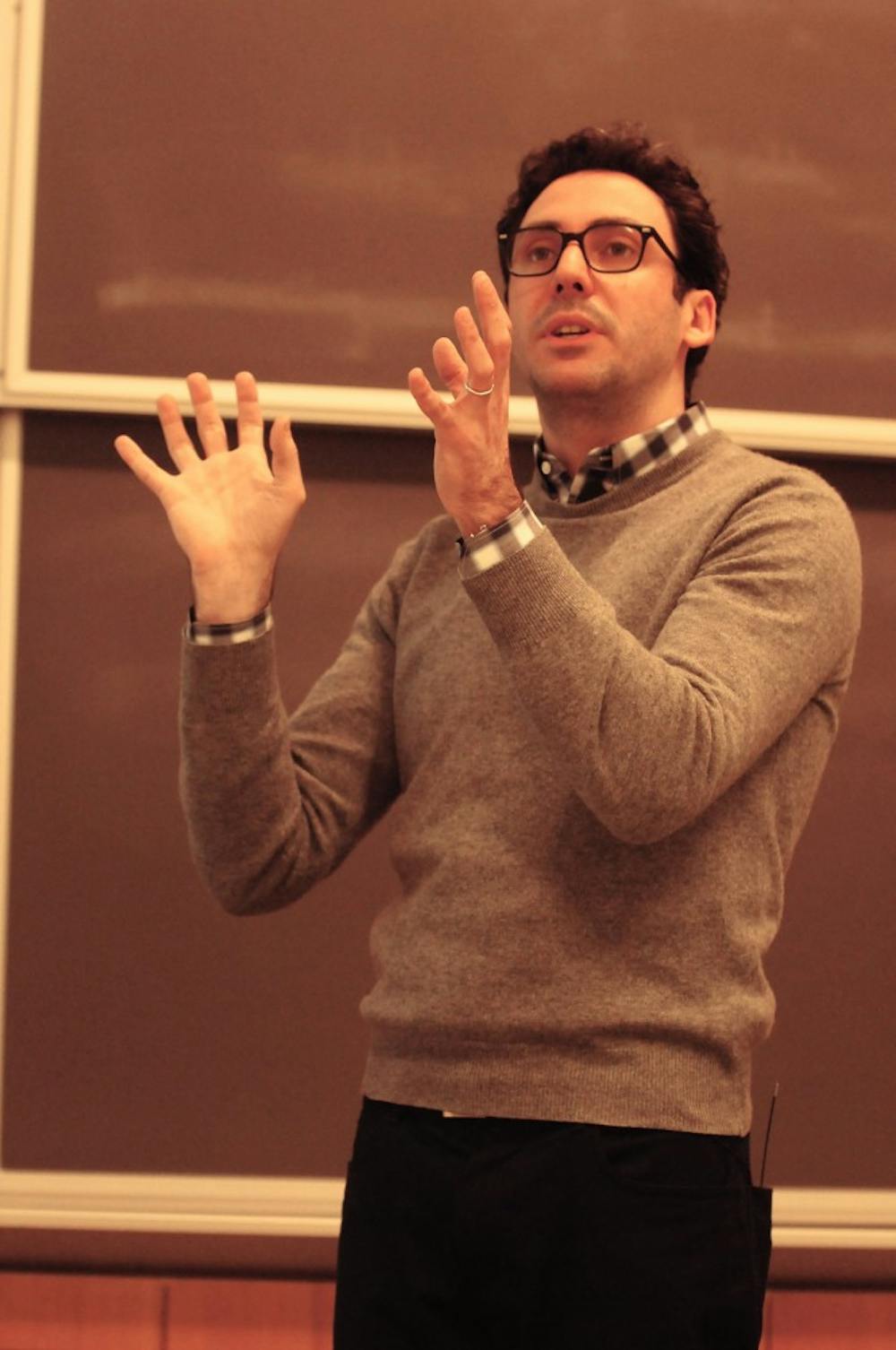Wharton MBA graduate Neil Blumenthal, a co-founder of successful prescription eyeglass and sunglass company Warby Parker, spoke yesterday at Huntsman Hall about his company's journey pipe dream to popularity. Blumenthal's visit was coordinated by the Jay H. Baker Retailing Center's Executive Speaker Series.
How did Warby Parker get its start?
“We came up with the idea for Warby Parker upstairs in the [Huntsman] computer labs,” Blumenthal said.
The original idea was to sell prescription eyewear for around one-tenth of their competitors' prices, or $45. When Blumenthal and co-founders Andrew Hunt, Jeffrey Raider and David Gilboa — who all attended Wharton — went to a professor for advice, he quickly shot down their idea. But by surveying their classmates, they discovered that “the willingness to purchase [glasses] increased, and then plateaued at $100,” according to Blumenthal.
They settled on $95 per set of glasses, and the Warby Parker concept was born.
Expanding to storefronts, from SoHo to Atlanta
Blumenthal said Warby Parker's co-founders never originally envisioned storefront locations for their business.
The company, which originally operated out of Blumenthal’s apartment, currently has five retail locations, with a sixth one in the works in Atlanta.
Demand for a retail location grew over time as the company became more popular. “We started off selling glasses on my dining room table,” Blumenthal said.
They expanded gradually — selling from Blumenthal's wife’s jewelry store, then pop-up shops and finally full-scale retail locations. “Each one of these steps gave us more confidence to do brick and mortar," Blumenthal said. "Sales were insane."
Setting the bar for social impact
Blumenthal also discussed Warby Parker’s social impact initiatives.
The company currently has a “Buy a Pair, Give a Pair” program that gives a pair of glasses to someone in need every time a pair is purchased.
“I know that a pair of glasses has a great impact on someone’s life," Blumenthal said. He added that one pair of glasses can increase earning potential by 20 percent.
"It’s important to create a company we want to work for,” he said of the company's social initiatives.
Capitalizing on the Wharton experience
Blumenthal gave advice to the Wharton students in attendance on how to better capitalize on their time here and succeed in the job market. “If you are thinking about going into management, I would encourage you to take management, leadership and, most importantly, feedback-driven courses,” Blumenthal said.
“We hire a lot of millennials ... one of the characteristics we have found is that they are very conflict-averse,” he added.
He encouraged students to take full advantage of the teamwork-oriented nature of the Wharton program because it helps them to deal with conflict and negative feedback, which are major issues Blumenthal sees with people confront in the workforce today.



